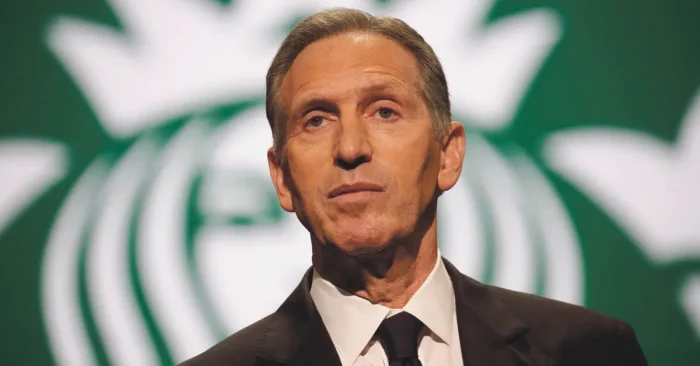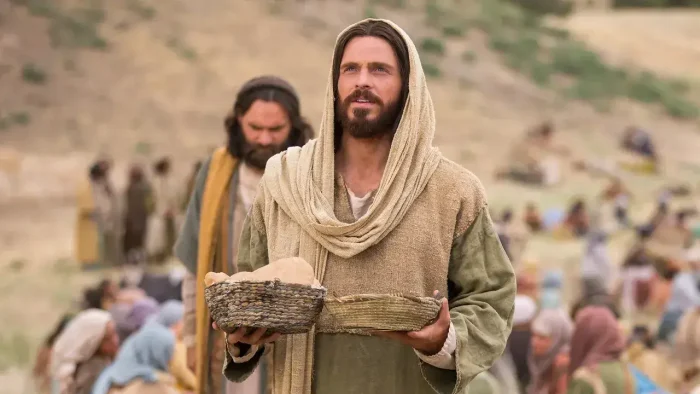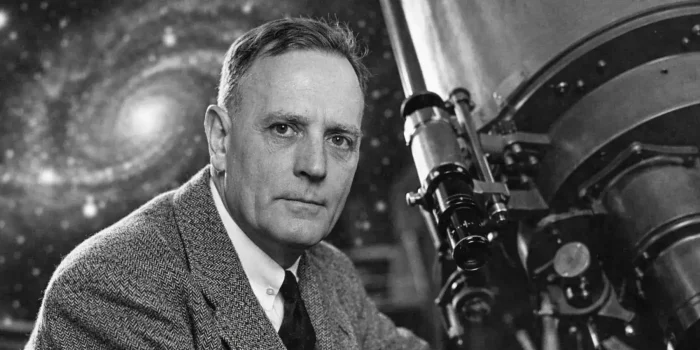Howard Schultz – Biography
Early Life and Education
Howard Schultz was born on July 19, 1953, in Brooklyn, New York. Raised in a working-class neighborhood, his father worked various low-paying jobs, including truck driving, while his mother stayed home to care for the family. Growing up in public housing, Schultz witnessed the financial struggles his family faced, experiences that would later shape his views on business and leadership. Determined to escape poverty, Schultz excelled in sports, particularly football, which earned him a scholarship to Northern Michigan University. He became the first in his family to attend college, graduating in 1975 with a degree in communications. Schultz’s humble beginnings instilled in him a deep empathy for working-class individuals, which would later influence his approach to business leadership and employee relations.
Early Career and Entry into Starbucks
After college, Schultz worked in sales and marketing roles at Xerox and then a Swedish housewares company, Hammarplast. It was during his time at Hammarplast that he encountered Starbucks, a small coffee company in Seattle that was one of his clients. Intrigued by their passion for high-quality coffee, Schultz visited Seattle in 1981 and was captivated by the potential he saw in the company. In 1982, he joined Starbucks as Director of Retail Operations and Marketing. During a trip to Italy, Schultz experienced the vibrant coffee culture of Milan, where espresso bars served as community gathering spots. Inspired by this, he envisioned transforming Starbucks into a place where people could not only buy coffee but also connect and socialize—a “third place” between home and work.
Transforming Starbucks
Schultz’s vision initially met resistance from Starbucks’ founders, who were hesitant to expand beyond selling coffee beans and equipment. Undeterred, Schultz left Starbucks in 1985 to start his own coffeehouse chain, Il Giornale, which successfully brought his Italian-inspired coffee bar concept to life. In 1987, Schultz acquired Starbucks with the help of investors, merging it with Il Giornale and assuming the role of CEO. Under his leadership, Starbucks rapidly expanded, transforming from a small regional company into a global brand. Schultz emphasized creating an inviting customer experience, high-quality products, and a strong company culture. By the mid-1990s, Starbucks stores were opening across the United States and internationally, making premium coffee accessible to the masses and redefining the coffee industry.
Leadership Philosophy and Company Culture
Schultz’s leadership was rooted in a belief that businesses should balance profit with social responsibility. He introduced innovative employee benefits, including comprehensive healthcare and stock options for part-time workers, setting a new standard in corporate America. Schultz often spoke about “servant leadership,” emphasizing that taking care of employees would lead to better customer experiences and long-term success. His people-centric approach earned Starbucks a reputation not just for its coffee, but for its workplace culture. Even as Starbucks grew into a global powerhouse, Schultz remained focused on preserving the company’s values, ensuring that the customer experience and employee satisfaction remained central to its mission.
Challenges and Return as CEO
In 2000, Schultz stepped down as CEO but remained involved with Starbucks as Chairman. However, by 2008, the company was facing declining sales and growing competition, prompting Schultz to return as CEO. He led a major turnaround, closing underperforming stores, refocusing on core values, and reinvesting in employee training and customer experience. His decisive actions revitalized Starbucks, restoring its reputation and financial performance. Schultz’s ability to adapt and refocus the company during turbulent times demonstrated his resilient leadership and deep understanding of both business strategy and human connection.
Beyond Starbucks: Philanthropy and Public Engagement
Outside of Starbucks, Schultz has been an active philanthropist, focusing on veterans’ issues, youth employment, and social justice. Through the Schultz Family Foundation, he has funded programs that support leadership development, educational opportunities, and workforce readiness. In 2019, Schultz explored a possible independent run for the U.S. presidency, though he ultimately decided not to enter the race. Despite this, his views on political and social issues continue to attract public attention, particularly his advocacy for corporate responsibility and ethical leadership in business.
Personal Life and Legacy
Howard Schultz is married to Sheri Kersch Schultz, and they have two children. Known for his humility and deep sense of purpose, Schultz frequently reflects on how his childhood experiences influenced his desire to build a company that treats its employees with dignity. His story—from growing up in public housing to leading one of the world’s most recognizable brands—serves as an inspiring example of the American Dream. Schultz’s legacy is defined not only by Starbucks’ global success but by his efforts to demonstrate that businesses can be both profitable and principled, putting people at the center of corporate purpose.
Conclusion
Howard Schultz’s journey exemplifies vision, resilience, and a deep commitment to values-driven leadership. Through Starbucks, he reshaped the coffee industry while promoting a business model that prioritized employee welfare and social responsibility. His emphasis on creating meaningful customer experiences and investing in people has left a lasting imprint on corporate culture worldwide. Schultz’s story remains a powerful reminder that with determination, compassion, and ethical leadership, businesses can succeed while also making a positive impact on society.
Frequently Asked Questions (FAQs)
What is Howard Schultz best known for?
He is best known for transforming Starbucks into a global coffee brand and for his leadership focused on employee welfare and social responsibility.
Did Howard Schultz grow up wealthy?
No, he grew up in a working-class family in public housing in Brooklyn, New York.
What is the Schultz Family Foundation?
The foundation supports initiatives related to youth employment, veterans, education, and social justice causes.
Did Howard Schultz run for president?
He explored a possible independent run for the U.S. presidency in 2019 but ultimately decided not to enter the race.
What leadership philosophy does Schultz advocate?
He promotes servant leadership, balancing profit with responsibility to employees, customers, and the broader community.






